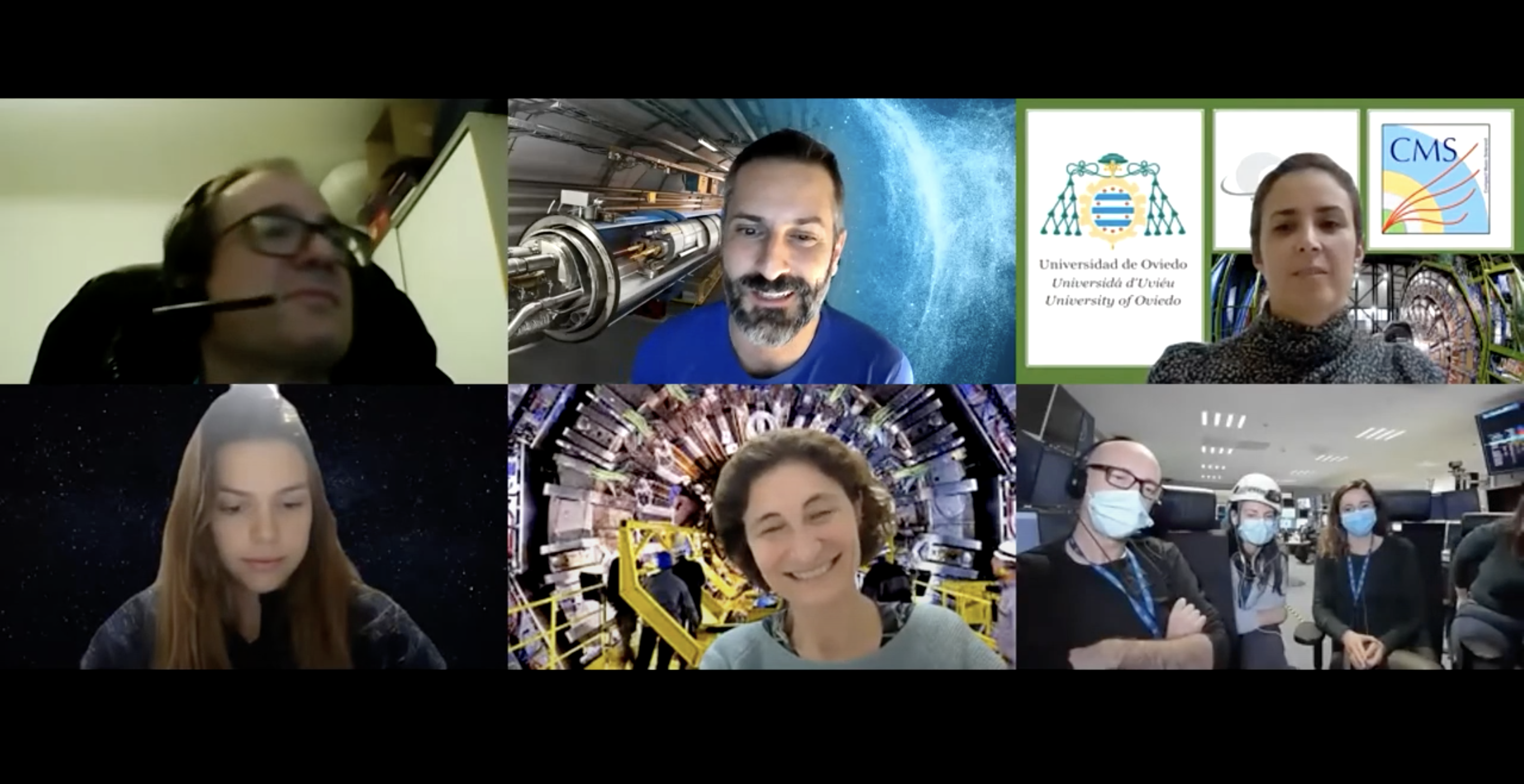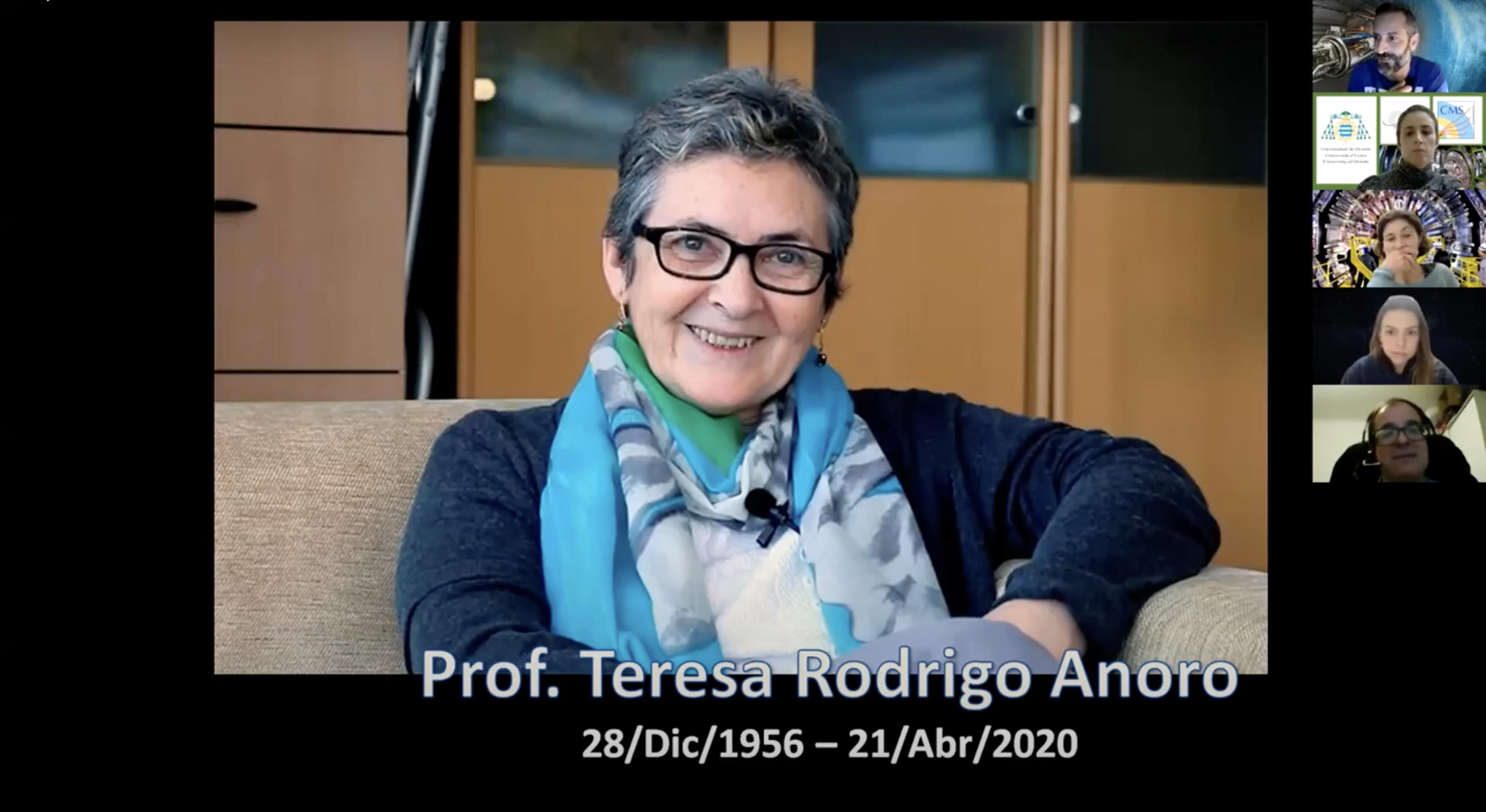At the end of the visit, the memory of Teresa Rodrigo, director of the Instituto de Física of Cantabria since 2016, was recalled
30th November, 2020
The activity, designed to commemorate the European Researchers' Night, was carried out through the Zoom platform with the collaboration of CIEMAT, the Universidad de Oviedo and IFCA.
At 18:30 in the afternoon of Friday 27th November and during one hour and a half, the control room of the CMS experiment, one of the four large detectors at CERN, was connected to study the proton collisions produced by the LHC collider.
The participants, after registration, could meet in person and ask their doubts and curiosities to their colleagues in the control room of CMS, located in Cessy, a small French village between the Jura Massif and the French-Swiss border.
In addition, the virtual trip was accompanied by short explanatory talks and questions, and the steps of one of the companions were followed as she began to descend 100 meters subway, where the "virtual crew" met in their plants to the 27 km ring of the LHC, within the great subway cavern, where the CMS detector is located, whose weight exceeds that of the Eiffel Tower. Once there, there was time to answer questions from the public through Zoom and learn more about the detection and study of particle collisions, the history of the Universe, and CERN's work.

Representatives from CIEMAT, the University of Oviedo, CERN and IFCA during the virtual visit.
Rocío Vilar (moderator) who explained the Spanish contribution to the CMS experiment, Jordi Duarte and Andrea García (control room), were the representatives of IFCA in this activity that has managed to bring together in telematic format 180 curious people about science.
At the end of the trip, the memory of Teresa Rodrigo, a world reference in particle physics research, UC professor, director of IFCA, a strong advocate of women in science who also, throughout her career, was part of discoveries such as the Higgs Boson or the QuarkTop, was recalled. "This has been a very hard year for the scientific community and I am sure I would have enjoyed this visit very much", Jesús Puerta.

Final moment of the visit, in memory of Teresa Rodrigo.
1 night, 30 countries
The Night of the Researchers is a day that was born with the vocation of sharing with citizens the current scientific projects, to disseminate, communicate and enjoy science with students, children and adults of all ages and to achieve that science is known in order to make society aware of its relevance. This night takes place every year simultaneously in 30 countries around the world, this time virtually.
